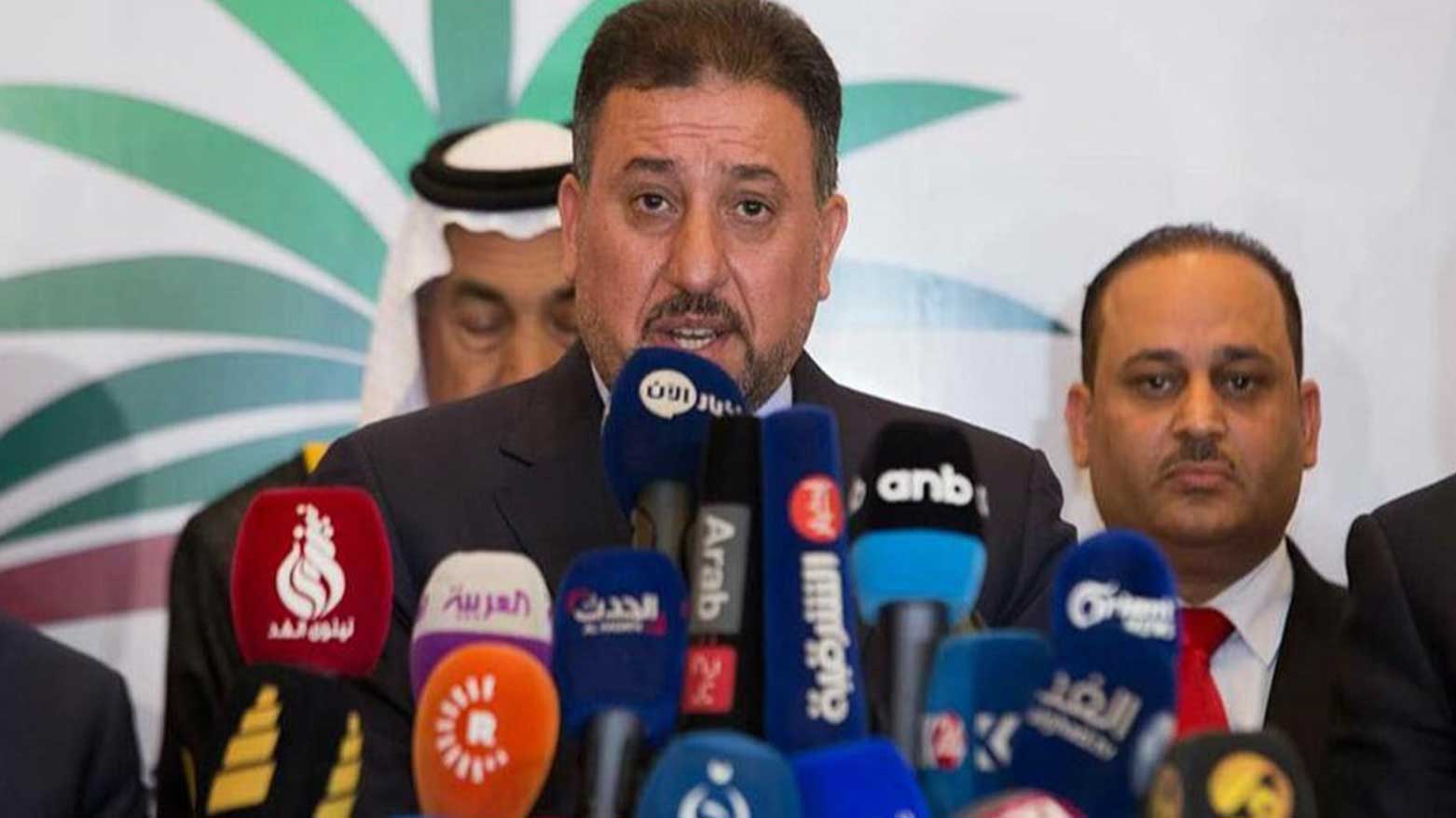Khamis al-Khanjar Condemns Assassination of Safa al-Mashhadani, Vows Justice
Leader of al-Siyada Alliance calls the killing “treacherous terrorism,” pledges to continue fighting for rights, ending discrimination, and holding perpetrators accountable.

ERBIL (Kurdistan24) — The al-Siyada Alliance on Wednesday expressed deep grief and outrage over the assassination of their prominent leader and parliamentary candidate, Safa al-Mashhadani, who was killed after an improvised explosive device (IED) targeted his vehicle in Baghdad’s Tarmiyah district earlier in the day. Video footage circulating on social media shows the car engulfed in flames with thick smoke rising from the scene.
Al-Mashhadani, a Sunni politician and member of the Baghdad Provincial Council, was one of the most influential figures in the capital and a leading candidate for the upcoming November 11 parliamentary elections.
His popularity, particularly among young voters and Sunni communities, made him a key vote-winner for the alliance led by Khamis al-Khanjar, and he was known for his strong stances and fiery remarks against Iran-backed Shiite militias in Iraq and their interference in politics and government affairs.
Following the killing, al-Khanjar released a statement condemning the assassination as “treacherous terrorism” and a continuation of the long list of crimes inflicted on Iraq.
He pledged that “the blood of the martyr Safa al-Mashhadani will not be wasted” and reaffirmed the alliance’s commitment to pursuing justice, eliminating uncontrolled weaponry, and fighting all forms of discrimination in the country.
“We will not be silent about the crimes of the criminals,” al-Khanjar said, offering prayers for al-Mashhadani and his family.
The assassination comes amid an increasingly tense and polarized political climate in Baghdad, with rival parties intensifying their campaigns ahead of the November elections. Observers say the attack highlights the fierce competition between emerging Sunni alliances and the ruling Shiite political blocs, which dominate Iraq’s parliament and government institutions.
Analysts note that al-Mashhadani’s assassination bears the hallmarks of a targeted political elimination, aimed at weakening the Sunni front before the elections.
His charisma, organizational skills, and broad popularity in Baghdad made him a pivotal figure capable of mobilizing thousands of voters in districts where Sunni representation has been historically eroded.
The attack also underscores Iraq’s deeply entrenched culture of political intimidation, where assassinations, kidnappings, and threats frequently shape electoral outcomes.
While the perpetrators remain unknown, many in Baghdad’s political circles have raised suspicions toward pro-Iran Shiite militias, who have previously been accused of targeting Sunni leaders and reform-oriented candidates.
The Iraqi government, as usual, is expected to pledge to investigate the killing, but past inquiries have rarely produced accountability, raising doubts about the state’s ability or willingness to confront armed groups operating outside its control.
The assassination has sparked widespread outrage across Baghdad, with citizens taking to social media to condemn the act and demand justice. Sunni political leaders denounced the killing as an attack on democratic participation, while civil society activists warned that such violence could intimidate voters and candidates, potentially affecting the November elections and undermining public confidence in Iraq’s democracy.
Al-Khanjar and the al-Siyada Alliance have vowed to continue their political efforts, insisting that al-Mashhadani’s death will strengthen their resolve to demand rights, redress grievances, and pursue electoral fairness.
With Iraq only weeks away from the vote, the assassination has cast a shadow over the elections, highlighting ongoing security vulnerabilities and testing the resilience of the country’s electoral system in Baghdad and beyond.